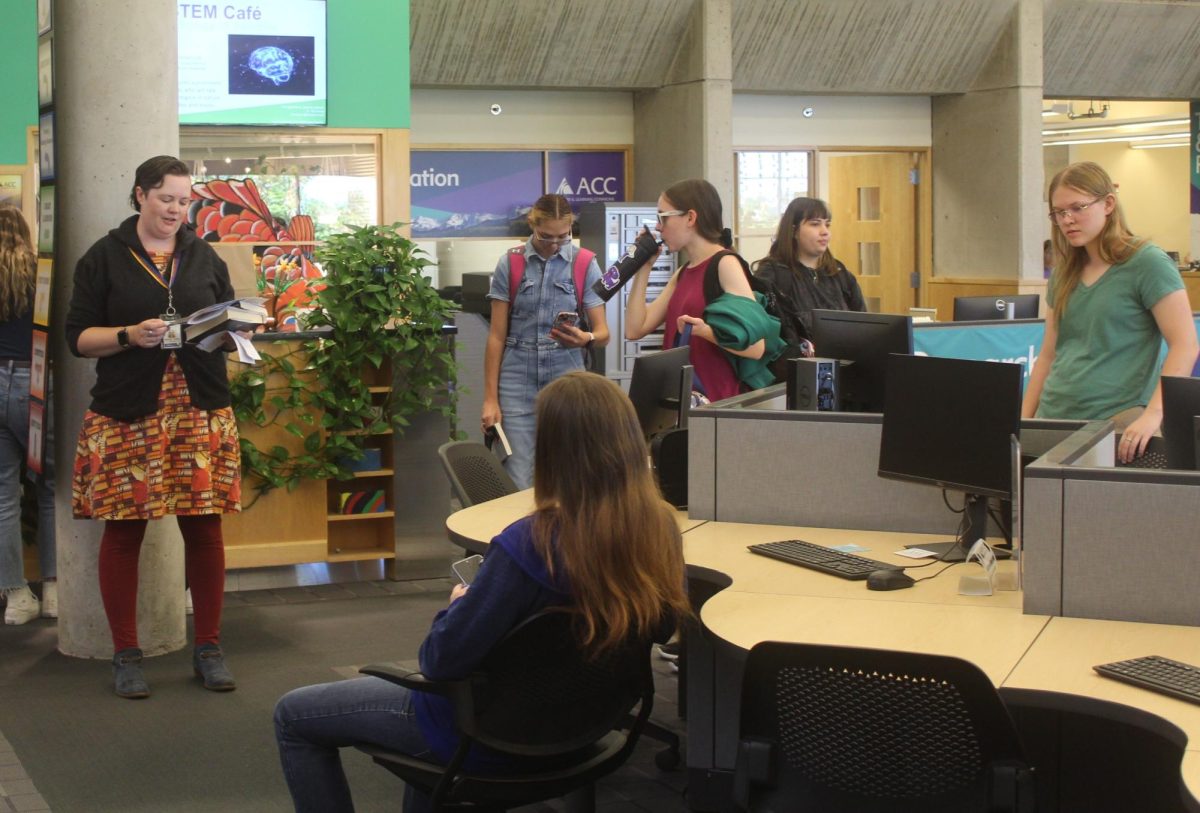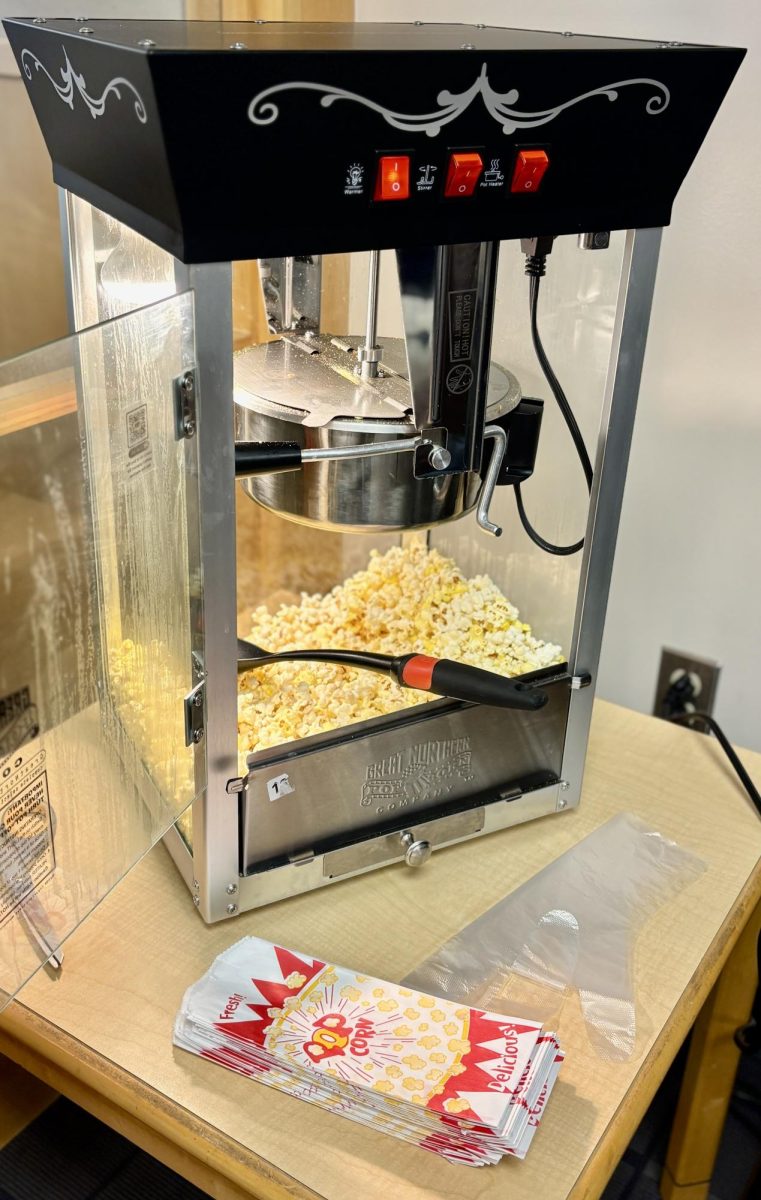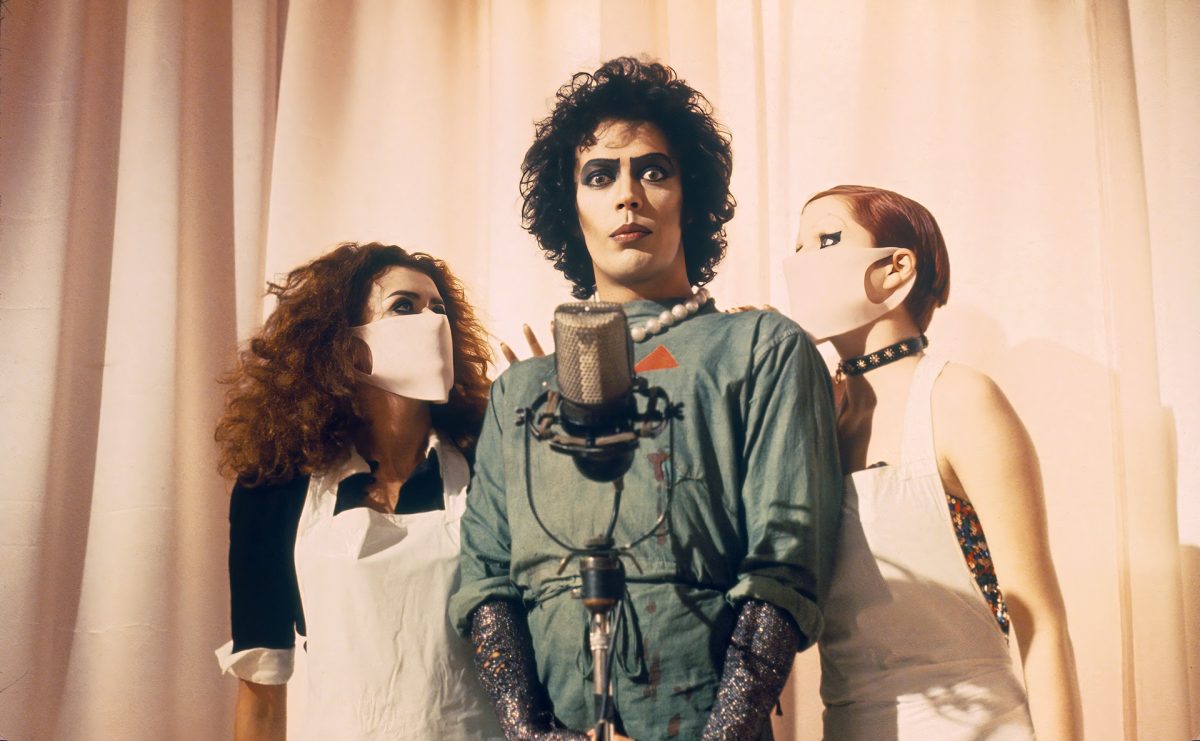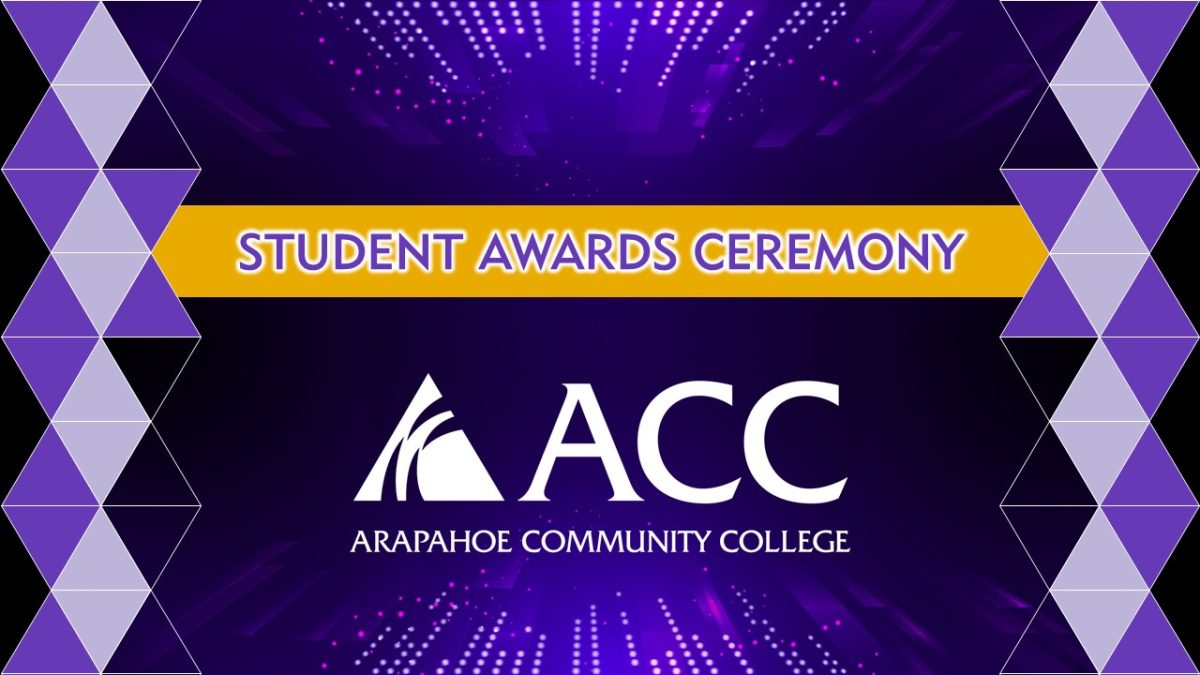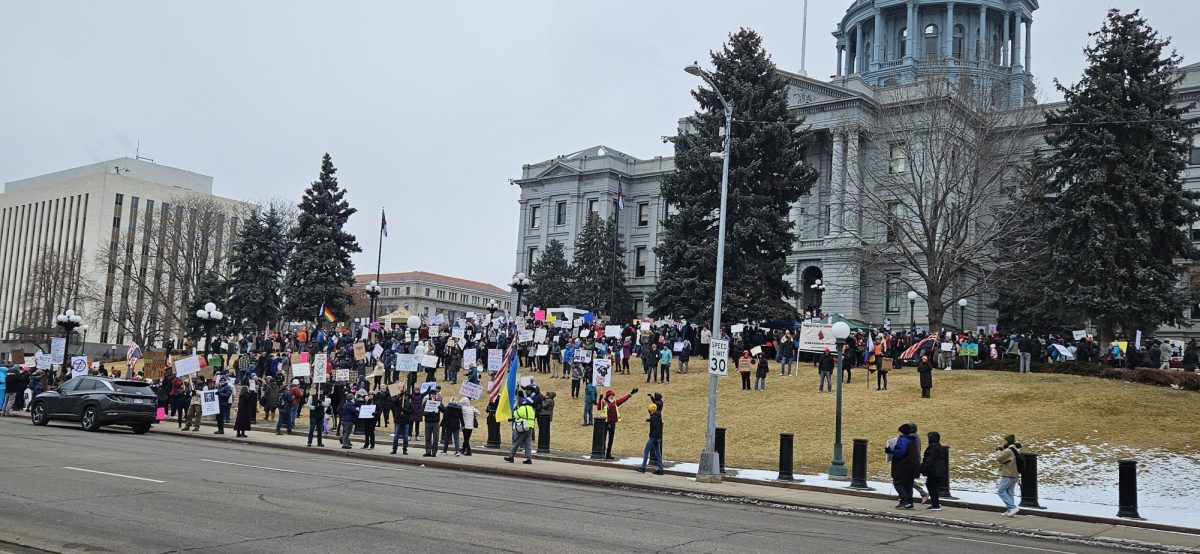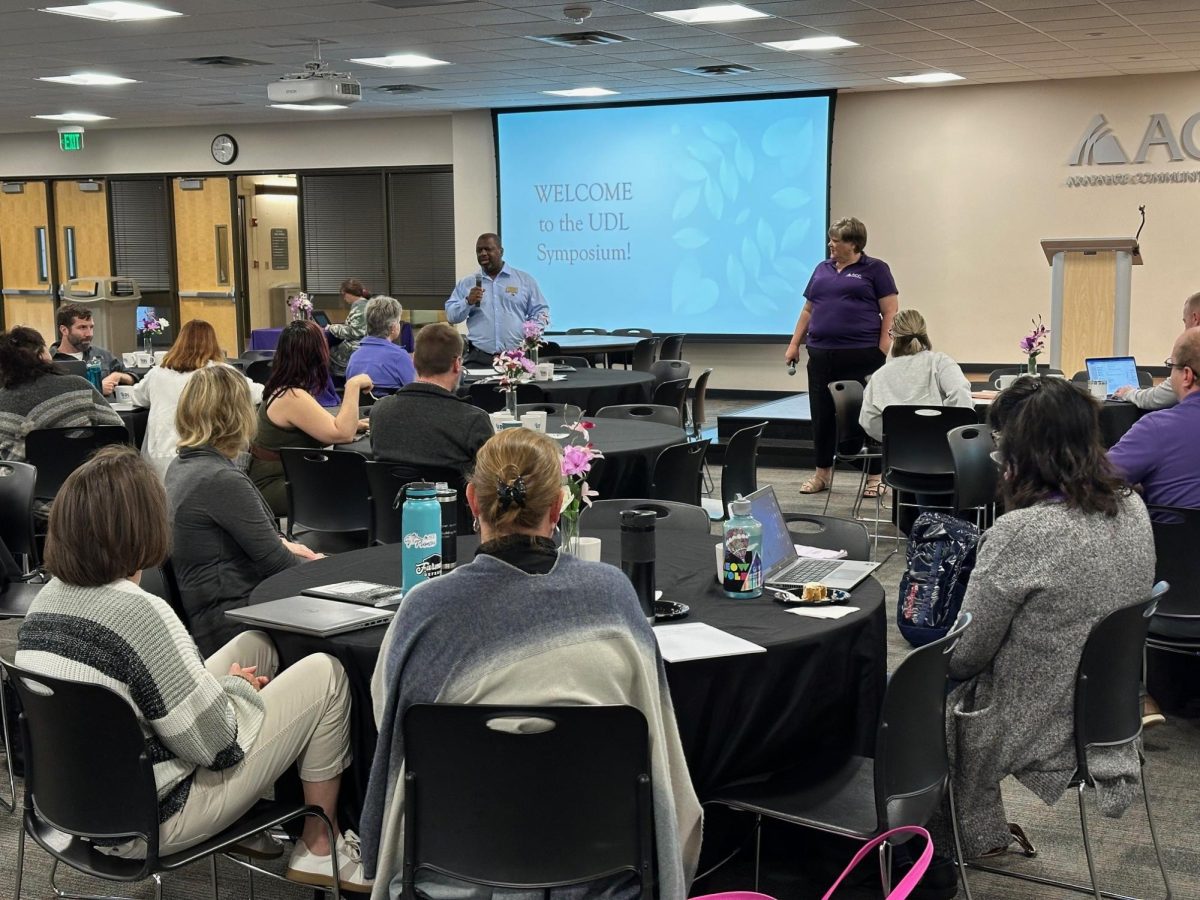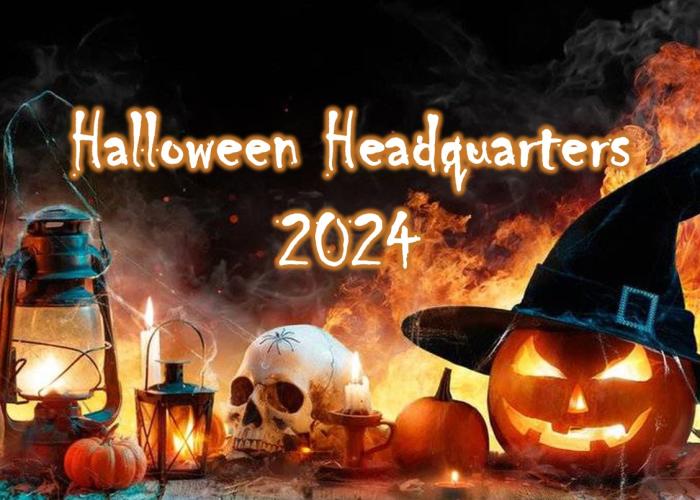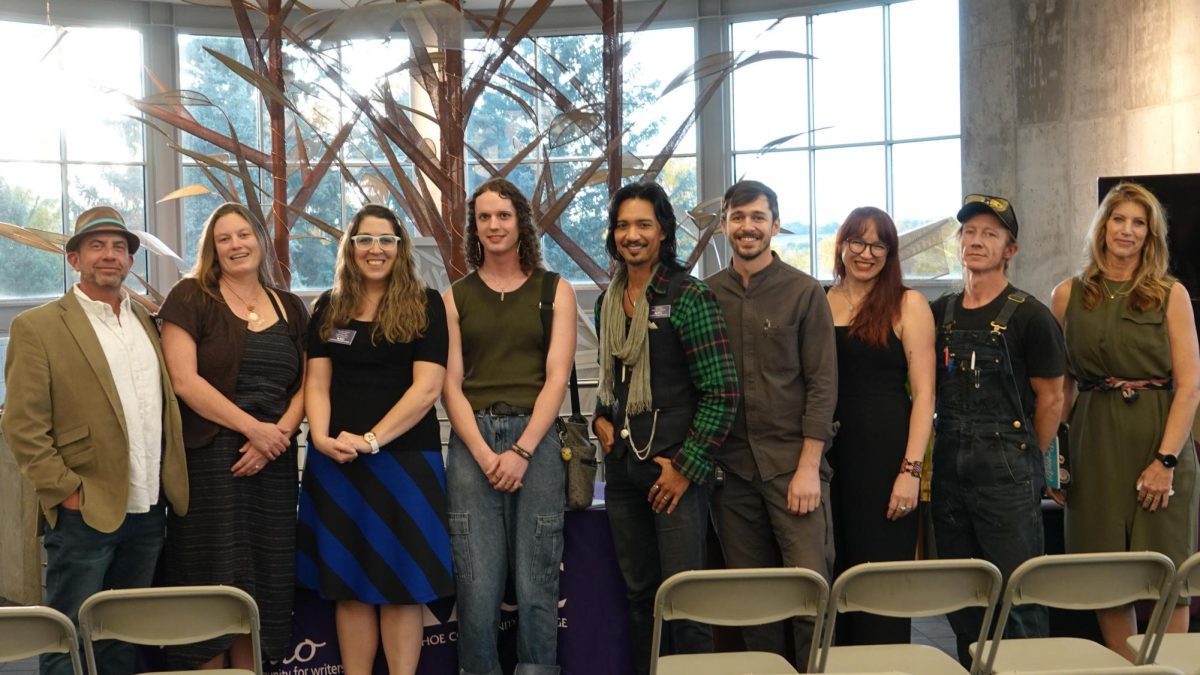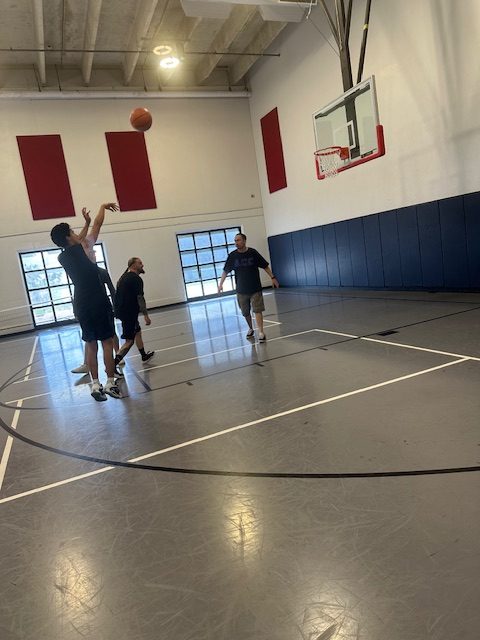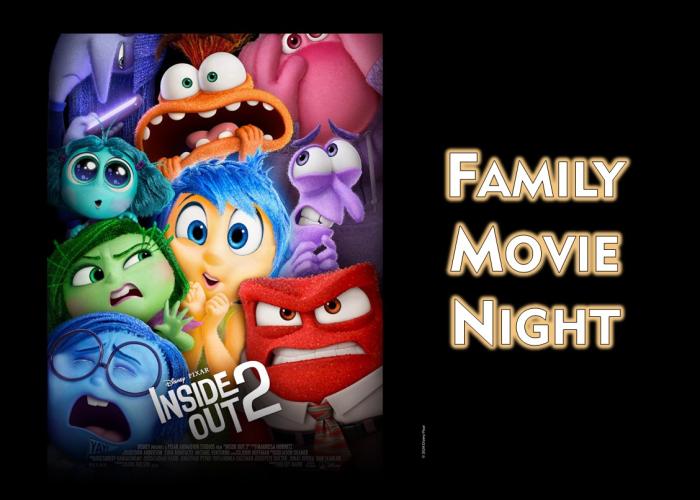Last week marked the annual Banned Books Week, and the students and faculty at ACC came together to share their support of the freedom to read – with a flash mob. ACC faculty members Professor Monica Fuglei, Professor Stephanie Lindberg, and Librarian Lara Beckwith organized a flash mob reading in the Littleton Campus library on September 25th.
Established in 1982 by Judith Krug of the American Library Association (ALA), Banned Books Week serves as an annual event to raise awareness and activism in support of the First Amendment, and as a challenge to book bans everywhere in the nation.
Members of the library faculty, as well as students and professors from two classes, converged on the library at about noon last Wednesday, September 25th, as they engaged in an act of civil disruption, a sort of controlled chaos, as they went around the library reading loudly from passages in banned books. This brazen violation of the library’s usual quietude brought immediate attention to the demonstration as students and staff in the library who were unaware of what was happening looked on in confusion.
Most tried to ignore the affair, putting on headphones or burying their faces in books, and several more simply packed up and went to another space, but a few watched on throughout the entire reading. Students studying or receiving tutoring seemed especially bewildered, and one faculty math instructor asked what the commotion was all about.
Math instructor Erin J. was caught off guard by the flash mob during a tutoring session with a student, but was pleasantly surprised once she was made aware of the purpose. Erin thought the demonstration was great overall, both in its effectiveness at getting the attention of passerby and in its messaging: “If someone tells you that a book is banned, you should immediately wonder why and the only way to figure out why is to read it.”
Lara Beckwith, Access Services Librarian and one of the organizing faculty of the event, felt the flash mob would be especially effective at garnering attention from an unaware audience. She remarked that the effectiveness of the flash mob is owed both to the surprising element of doing one at all, as the flash mob has fallen out of viral popularity in recent years, as well as the inherently discomforting and disruptive nature of speaking loudly in a library. Beckwith shared several comments about the inconsiderate, stifling nature of book bans and encouraged everyone to read the banned materials for themselves and form their own opinions.
Jalear Fiddler, a second-semester Business Marketing major at ACC, was one of the student onlookers to the event. Fiddler was unaware that the flash mob was taking place and found it an especially peculiar disruption to his usual time in the library. While certainly effective at getting his attention, Fiddler felt the messaging was a bit unclear: “I think it’s interesting. I don’t know why they’re doing it in a library; I don’t know what we can do about that [book bannings]. I understand they are bringing awareness to it, but to interrupt other students working and studying, I don’t know if that was the [most] effective way to go about it.”
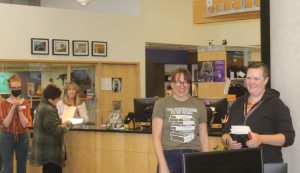
Monica Fuglei, one of the faculty organizers of the flash mob, and a professor in the English department, shared that the flash mob was born out of a desire to raise awareness about the increasing issue of book bannings, but that it was also a result of an unfortunate lack of time and capacity to come up with a series of events as they had in previous years. Fuglei echoed the sentiments of other faculty organizers and onlookers that the flash mob approach was effective at getting attention, but maybe fell short of calling to action those witnessing the event. In potential future flash mob events, Fuglei stated she “would like to have a small handout or something like that, so that we could follow that attention with action.”
Professor Fuglei also shared some alarming statistics surrounding this issue from the American Library Association’s website, namely that book bans and challenges have risen exponentially in recent years.
Fuglei finds that this issue strikes close to home with her as “Colorado is one of the 17 states that had the highest number of book bans and challenges last year,” and she encourages students to research this issue via the ALA website , and to get involved at the local level to support our freedom to read.



